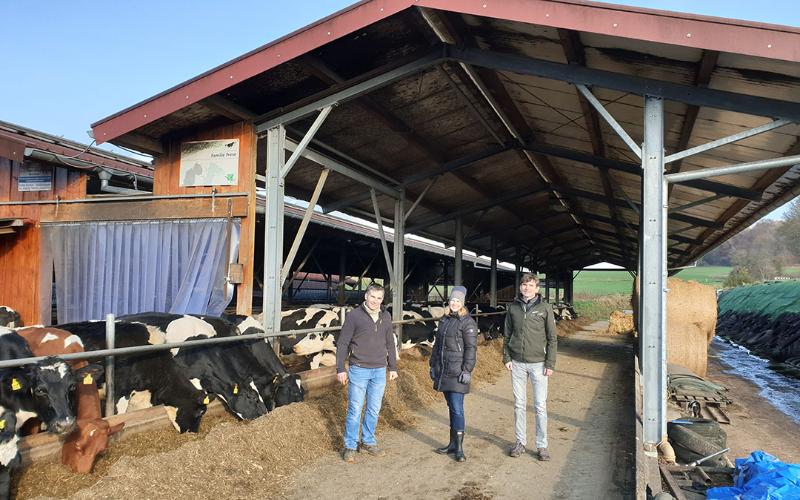Measuring Climate Change on Dairy Farms in Germany
Sourse: www.dairyindustries.com
An extensive report from the 'Climate Milk Farm' initiative details successful strategies for reducing dairy farm emissions in Germany.

A comprehensive final report from the 'Climate Milk Farm' initiative, involving Nürtingen-Geislingen University of Applied Sciences, Nestlé, Original Wagner Pizza, and Hochwald Foods, has documented climate protection strategies on a German dairy farm, Frese Hof in Mörshausen, Hesse. Initiated in 2021, the project aims to make milk production more climate-friendly by 2050 without jeopardizing economic viability. The report includes practical fact sheets assessing the economic feasibility of individual measures.
Measurable Success in Reducing CO2e Emissions
The farm successfully integrated climate-friendly practices into its supply chain. These practices resulted in a 35% reduction in CO2e emissions per kilogram of milk from 2020/21 to 2024/25. Using the Cool Farm Tool for carbon footprint calculation, the project established a clear emissions baseline in 2020/21.
Hochwald Foods' CEO, Detlef Latka, emphasizes the project's financial implications, while Oliver Schoß of Original Wagner Pizza underscores the need to share and apply the farm's insights along the supply chain.
The Most Effective Measures
Effective initiatives included fermenting slurry in biogas plants and using feed additives to cut methane emissions. These methods, however, are cost-intensive. Legume cropping and carbon sequestration showed promise but were weather-dependent.
Dr. Stephan Schneider from HfWU noted that good professional practices intrinsically improve the CO2e footprint. Economic and bureaucratic facilitations are crucial for lasting climate initiatives.
Experiences and Challenges
Farm manager Mario Frese's proactive role was pivotal, though carbon accounting posed challenges, as not all savings were directly measurable. Weather-dependent plant measures and funding delays also hindered uniform implementation.
Transferability and Outlook
The project will continue until April 2026. Its findings will feed into Hochwald Milch Plus's sustainability agenda, assisting member farms with CO2e reductions to meet global climate goals.
Measurable Success in Reducing CO2e Emissions
The farm successfully integrated climate-friendly practices into its supply chain. These practices resulted in a 35% reduction in CO2e emissions per kilogram of milk from 2020/21 to 2024/25. Using the Cool Farm Tool for carbon footprint calculation, the project established a clear emissions baseline in 2020/21.
Hochwald Foods' CEO, Detlef Latka, emphasizes the project's financial implications, while Oliver Schoß of Original Wagner Pizza underscores the need to share and apply the farm's insights along the supply chain.
The Most Effective Measures
Effective initiatives included fermenting slurry in biogas plants and using feed additives to cut methane emissions. These methods, however, are cost-intensive. Legume cropping and carbon sequestration showed promise but were weather-dependent.
Dr. Stephan Schneider from HfWU noted that good professional practices intrinsically improve the CO2e footprint. Economic and bureaucratic facilitations are crucial for lasting climate initiatives.
Experiences and Challenges
Farm manager Mario Frese's proactive role was pivotal, though carbon accounting posed challenges, as not all savings were directly measurable. Weather-dependent plant measures and funding delays also hindered uniform implementation.
Transferability and Outlook
The project will continue until April 2026. Its findings will feed into Hochwald Milch Plus's sustainability agenda, assisting member farms with CO2e reductions to meet global climate goals.
Key News of the Week










